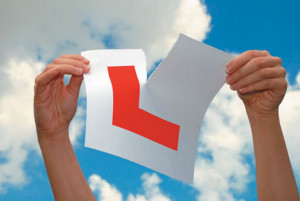
To help replace negative thoughts
The swish technique is from a branch of psychology known as NLP (Neuro Linguistic Programming) and is used for a great many purposes by successful people all over the World. It is particularly suitable to help you deal with ‘one-off’ situations where you need a confidence boost, although there are many other times when it may be useful.
To use it successfully, you need to be in a comfortable place where you will not be disturbed. It’s better if you are wide awake – you will have your eyes closed and it is easy to fall asleep during this technique because of its somewhat repetitive nature.
To start the Swish
Sit or lie comfortably and close your eyes. Steady your breathing and relax your body as much as you can for a minute or two; play some favourite music if you find this helps.
Now create, in your mind’s eye, an image of you just at the moment of having to deal with the anxiety-causing situation. It must be as vivid and sharp as you can make it, filling your whole vision, the colours bright and alive, with you looking just as uncomfortable as you can possibly imagine.
Make it seem like an enormous colour slide being projected in your mind, and include anything that will make it more lifelike; other people around you, their expressions, the scenery, sounds, smell, touch, etc. – anything. When you have that picture vivid enough that it actually makes you squirm, then you’ve got it right. We will call that picture the ‘moment of anxiety’. Giving it a name makes it easy for you to recall later on, but for now, ‘lay it to one side’ in your mind.
Now the perfect future
Now for something more comfortable. This time you are going to create an image of you just at the moment when you have SUCCESSFULLY dealt with the problem at hand. Again make it as vivid as is humanly possible and do the same ‘tricks’ as before to make it truly lifelike. We will call this one the ‘moment of achievement.’
In it, you should be looking absolutely as if you truly have just been incredibly successful with the specific circumstance. When you get it right, when it makes you feel good, allow yourself to enjoy it for a moment, then imagine it shrinking, becoming smaller and smaller, with the colours becoming less and less pronounced until you are left with a small black-and-white picture the size of a postage stamp. Then ‘lay it to one side’, just as you did the first one.
Override
Pick up the ‘moment of anxiety’ picture. Make sure it fills your entire vision. Make it just as sharp, just as lifelike, just as ‘squirm-making’ as it was before. But this time with an important addition. The small, black-and-white ‘moment of achievement’ picture is tucked into the bottom left-hand corner.
When you have that image clearly in your mind, just say to yourself:
‘S-W-I-S-H’. At the same time changing the pictures over in your mind. The ‘moment of achievement’ becomes the large colour picture and the ‘moment of anxiety’ shrinks to the size of a postage stamp. Which is tucked into the bottom left-hand corner, becoming black-and-white as it does so.
Enjoy it for just a few moments.
Let your mind drift to some neutral place. This can be anywhere you like. A room in your house, the park, a deserted beach. Anywhere, as long as it’s a place where you are comfortable and at ease. It’s very important that you perform this switch to a neutral place each time.
Start again
Now start again at step one and continue to repeat the sequence. After a while, you will find that the pictures change over so easily. They become so rapid that you scarcely have any time to see the ‘moment of anxiety’ before it is replaced with the ‘moment of achievement’. This can take as few as three or four attempts. It should be repeated every day until the pictures change instantly right from the start. Otherwise, you’ll find that you simply cannot produce the moment of anxiety picture at all.
When that happens, you have programmed yourself for success, rather than failure. You will find that when you actually get to the event you have been working on, you will feel confident and easy. Able to give your best as a result. It sounds rather complicated at first, but you soon get used to it. But it is worth persevering with. I would say it’s one of the most powerful ‘quick-fix’ methods in existence.
Useful for:
Stagefright
Riding Confidence
Fear of Thunder and Lightning
Other phobias
Driving exam nerves
